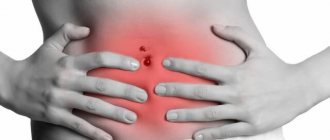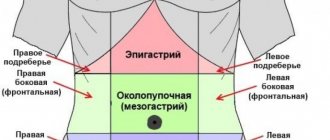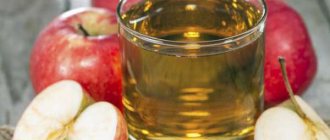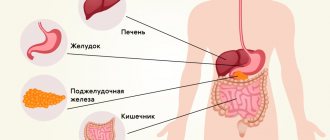Causes
If you have a stomach ache or feel discomfort in your abdomen after childbirth, you need to determine the cause of the illness. Discomfort can occur for several reasons. Self-diagnosis in this case is almost impossible. Remember that abdominal pain can be a dangerous symptom of various diseases. Let's look at the main causes of abdominal discomfort after childbirth and during breastfeeding.
- Exacerbation of chronic diseases. If a woman had gastrointestinal diseases during pregnancy, these diseases could worsen during childbirth. If you have any stomach diseases, you must carefully follow your doctor's recommendations to avoid exacerbations. If you experience abdominal pain after childbirth, you should visit a gastroenterologist.
- Change of schedule and food. Often during breastfeeding, when a mother changes her eating schedule and begins to eat foods that are unusual for her, the stomach may react with soreness and bloating.
- Stomach prolapse. During pregnancy, all of a woman's organs are displaced. Childbirth can worsen the displacement, which can cause the stomach to prolapse. Stomach prolapse, or gastroptosis, is a common cause of abdominal pain after childbirth.
- Muscle pain. Often, women may confuse muscle pain after childbirth with stomach pain. Such sensations are typical for women who have undergone difficult childbirth. If the baby was squeezed out by manual pressure on the fundus of the uterus, in the first days after birth the mother may feel moderate or severe pain in the stomach area.
- Stress. Postpartum stress often causes stomach discomfort. At the same time, an increased content of acid is released into the stomach, which irritates the mucous membrane and causes pain. Stressful conditions also include irritable bowel syndrome.
Read also:
How a woman’s body changes after childbirth and what complications lie in wait
Diseases that cause stomach pain in a nursing mother
Why does my stomach hurt when breastfeeding? The doctor will be able to answer this question after the examination. Let's talk about the most common diseases that provoke discomfort.
Gastroptosis
Stomach prolapse causes aching or dull pain in the epigastrium. Typically, discomfort occurs after eating and goes away while lying down. Sometimes pain occurs in the lumbar region. Eating food provokes bloating and heaviness in the stomach, nausea and belching.
Physical therapy strengthens the ligamentous apparatus, which is responsible for holding the stomach in place. A woman is recommended to do gymnastics or swimming. A special role in the treatment of prolapse is played by breathing exercises, which should be carried out under the supervision of a specialist. Folk methods are also used as auxiliary therapy, for example, infusion of yarrow and wormwood.
Cholecystitis
Inflammation of the gallbladder causes a dull pain on the right side, which radiates to the shoulder blade and arm. Women complain of belching with a bitter taste, nausea and vomiting, general malaise, fatigue, drowsiness, and fever.
With cholecystitis, it is extremely important for a woman to follow a strict diet. In difficult cases, a two-day fast is prescribed. In the future, it is important to eat smaller meals. Food is best cooked steamed or stewed and baked. Food should be taken warm; cold foods will only increase discomfort. Compliance with the drinking regime plays an important role.
Gastritis
Gastric pain has a pulling, cramping character. Women are also concerned about nausea, vomiting, belching, heartburn, and upset bowel movements. In some cases, the doctor may recommend interrupting feeding. If the pain is moderate and does not affect the general condition of the woman, then in this case the problem can be eliminated without interrupting feeding.
With gastritis, a woman is recommended to eat food that envelops the gastric mucosa and does not irritate the organ. During the inflammatory process, you should eat oatmeal with water, buckwheat porridge, jelly, vegetable stew, etc. Mineral waters can normalize the acidity of the stomach. For high acidity, it is recommended to take Borjomi; for low acidity, Essentuki.
Pancreatitis
Pain in the upper abdomen due to inflammation of the pancreas is burning and bursting in nature, which is simply unbearable to endure. Vomiting does not bring relief. Remnants of undigested food appear in diarrhea. The general condition of the woman is disturbed, the body temperature rises.
Diseases of internal organs
Often the cause of stomach pain is a disease of one of the internal organs. The disease can be either chronic or acquired after childbirth. Common causes are diseases of the large and small intestines, stomach, pancreas, gallbladder or liver.
The syndrome can also be a sign of diseases such as gastritis and stomach ulcers. Only diagnostics can reveal the presence and extent of these diseases. If you consult a doctor in a timely manner, you can hope for gentle treatment and a speedy recovery.
Abdominal pain is insidious and dangerous. It can occur with diseases of organs that are not related to the abdominal cavity. So, for example, pain in the abdomen can appear due to pathologies of the appendages, kidneys, lungs or uterus. To make an accurate diagnosis, you need to consult a specialist.
Medicines for nursing
My stomach hurts terribly. It’s already sick, I used to often take Almagel, ranitidine and all sorts of similar drugs, but now I read the instructions everywhere, a contraindication: the period of breastfeeding. I also have terrible pain! Chronic gastritis, and even in some complex form! Now I'm breastfeeding, so I only save myself with phosphalugel! This is probably the only thing that is possible with breastfeeding. Maybe he will save you too! And yet, I drink 2 minamum sachets at a time! Healthy Stomach is no joke at all!
Contraindicated during breastfeeding.
Spasms
Another common cause of abdominal pain is cramping. Experts note that the causes of the disease still remain unknown. With this disorder, no pathological changes in the functions and tissues of the organ are observed. Treatment is based on relieving muscle spasms. Presumably the disease develops against a background of nervous shock and stress. It is noted that only adults suffer from spasms.
If this disorder occurs, it is necessary to undergo a thorough diagnosis of the abdominal organs in order to exclude other causes of pain. Only after analyzing the condition of all organs and systems will the doctor be able to prescribe adequate treatment.
However, there is no need to attribute any pain to a spasm. Pain is a signal that some kind of disorder is occurring in the body. It doesn’t just arise and go away. Our body is designed in such a way that we can learn about problems in the functioning of organs in time and eliminate them.
Traditional methods of dealing with heartburn
The most popular folk method of getting rid of heartburn is water with soda. Add 1 teaspoon of baking soda to a glass of clean water and drink in one gulp. The remedy relieves the unpleasant symptom, but for a very short period - after some time, heartburn will return again, and perhaps with renewed vigor.
Potato juice is considered a more effective remedy in the fight against heartburn. To obtain it, you need to grate fresh potatoes on a fine grater and squeeze out the separated juice through cheesecloth. If a burning sensation occurs, you need to drink 2-3 tablespoons of the product, and to increase its effectiveness, you can add carrot and cabbage juice.
All remedies aimed at eliminating heartburn only help eliminate discomfort; they do not act on the cause of the symptom. To finally get rid of heartburn, you should undergo an examination and eliminate the identified pathologies.
Which doctor should I contact?
If you experience abdominal discomfort, you should visit a gastroenterologist. If acute and burning pain occurs, you should immediately call an ambulance. Only through research results can we find out the true causes of stomach pain.
Read also:
Should a woman be afraid of a bending of the uterus after childbirth and how to deal with it?
The first step to determining the cause of pain is interviewing the patient. In this case, it is necessary to clearly describe the location and intensity of pain. If pain becomes your companion after childbirth, be sure to tell your doctor about it.
During the initial examination, the following diseases can be identified:
Gastritis. The localization of pain with gastritis is felt in the upper or middle part of the stomach. The pain intensifies after eating. With this disease, the sensations may be sharp or nagging in nature.
Such pain is also characteristic of a stomach ulcer. An ulcer is a complication of untreated gastritis and often requires surgical treatment.
Postpartum gastric prolapse.
This pathology is characterized by heaviness in the stomach, which increases after eating.
Cases of bloating and discomfort are common. The pain is aching. Localization in the pit of the stomach. Patients with this diagnosis also experience nausea and lack of appetite.
Often nursing mothers face the problem of irritable bowel. This disease can develop from a combination of reasons. The transition to a new schedule and diet, combined with postpartum stress, becomes an impetus for the development of the disease. The main signs of the disease are intestinal dysfunction, which may be accompanied by constipation or diarrhea. There is also a feeling of discomfort and aching pain in the abdomen.
If you had diseases of the abdominal organs before pregnancy, you should also notify your doctor. You need to have a medical card with you, which reflects all your chronic and acquired diseases.
Lower abdomen hurts
The postpartum period is different for every woman. Sometimes pain appears in the lower abdomen, which can greatly frighten a woman. Brief and mild discomfort is considered normal. If the pain does not go away for a long time and brings unbearable discomfort, this cannot be tolerated.
Let's highlight the most common causes of pain in the lower abdomen:
- active production of oxytocin can cause cramping, nagging pain. The hormone stimulates the contractile function of the uterus so that the organ returns to its previous shape;
- Nipple irritation during lactation further stimulates the production of oxytocin. Active contraction of the uterus causes a new wave of pain;
- Remnants of the placenta in the uterus can provoke pain that does not subside within a month after birth. Adhering particles provoke the formation of blood clots and rotting. The problem can be solved with the help of surgery, along with which antibacterial therapy is prescribed;
- endometritis. Most often occurs after cesarean section. Surgery can cause infection to enter the uterus. In addition to pain, bloody discharge mixed with pus appears, and the temperature also rises. Comprehensive treatment will help cope with the inflammatory process, including the following drugs: antibacterial, desensitizing, detoxifying, restorative;
- salpingo-oophoritis. Inflammation of the appendages provokes nagging pain in the lower abdomen;
- peritonitis. Inflammation of the abdominal cavity causes unbearable pain and high fever;
- vertebral displacement. In this case, the pain radiates to the spine. Unpleasant sensations can bother a woman for a long period of time and intensify with physical activity.
Prohibited means
There are medications that are strictly prohibited to take during lactation, even if the pain is very severe, the baby’s next feeding is far away, and there are no other painkillers in the house. This is due to their destructive effect on the human body, even an adult, and even more so on the developing body of a child.
Medicines containing the active substance metamizole sodium, better known as analgin, impair hematopoiesis and negatively affect kidney function. It is undesirable to take them not only during breastfeeding, since the harm from their use and side effects outweigh the benefits. These include such well-known drugs as:
Nimesulide is a selective non-steroidal anti-inflammatory drug. There is no reliable data regarding its effect on milk and on the child, so it is better to refrain from using it. Included in analgesics:
Source
Prohibited painkillers
Citramon and aspirin are dangerous for a child; they lead to disruption of the liver. In addition, citramone contains caffeine, which has a negative effect on nerve cells. Caffeine disrupts sleep and causes the newborn's body to become agitated. This is why it is not recommended to drink coffee during lactation, at least for the first six months. For coffee lovers, you can replace the drink with chicory.
Analgin is dangerous not only for children, but also for adults. This drug has long been banned in dozens of countries around the world, but in Russia the tablets are still popular. Analgin effectively relieves pain, but has many side effects. This is a toxic drug that changes the composition of milk and reduces lactation. It impairs hematopoiesis and negatively affects kidney function.
Nimesulide is classified as an NSAID, but it is not advisable to take this drug during breastfeeding due to the lack of specific data on the effect of the drug on the newborn and milk.
In addition, a nursing mother should not take combination products that contain several active elements. This increases the risk of allergies. Often these drugs contain Codeine, which suppresses the child’s activity and mental activity.
Keep in mind that any substance can cause an allergic reaction. Depends on genetics and the individual development of the baby. If your child feels worse after taking medication, stop taking it immediately and consult a doctor!
What medications should breastfeeding mothers never take?
First of all, we will give universal advice: do not believe the information found on the Internet. Which, by the way, needs to be communicated not only to the fact that you are breastfeeding. The medications that the doctor prescribes also depend on the following things: In the second case, children's organs may not yet be developed enough to cope with even minimal doses of medication; If the baby is low in weight, the recommendations may be completely different. And yet, only those drugs that are prescribed to infants can be considered fully safe.
Since the birth of a newborn child, every young mother faces a number of difficulties that arise in her health and well-being. During the period of bearing a child and breastfeeding, it is not uncommon for a woman to experience discomfort and pain in the stomach area.
Pain during menstruation, injury, migraine, tooth extraction - these and other situations require help, but a nursing woman is limited in the choice of medications. Therefore, the doctor is faced with the task of helping the mother and not harming the baby. This does not mean that pain must be endured! We'll figure out what medications you can take in this article. Dr. Komarovsky, for example, recommends avoiding the use of painkillers while breastfeeding or pregnant, as some drugs simply have not undergone proper clinical studies. However, if a woman cannot tolerate severe pain, there is no point in waiting for it to go away on its own or using dubious traditional methods. Here are a few rules that will help you quickly deal with the problem and avoid harming yourself and your child: Thus, the ideal time to take the product is after the evening feeding. Babies, even newborns, sleep for 3-4 hours at this time; during this period, the medicine will not only have time to eliminate the mother’s pain, but will also be eliminated from her body, including from milk.
Diagnostics
Before starting treatment for this condition, a nursing mother should consult a medical specialist to undergo diagnostics and obtain a reliable diagnosis. For diagnostic purposes, the patient may be prescribed:
- General clinical blood test;
- General urine analysis;
- Ultrasound examination of the abdominal organs;
- Gastroduodenoscopy.
Before starting therapy for breastfeeding, a woman is recommended to consult a gastroenterologist to identify the cause of stomach pain. The doctor prescribes a set of examinations for the woman:
- UAC;
- OAM;
- Ultrasound of the abdominal organs;
- gastroduodenoscopy.
Doctor Komarovsky's opinion
Dr. Komarovsky, a pediatrician, candidate of medical sciences, a doctor of the highest category and a TV presenter, believes that it is best, of course, to try to do without pills, since no one can give guarantees what the consequences will be. Absolutely all medications pass into the mother’s blood and then into breast milk. If, nevertheless, a situation arises when it is impossible to do without taking medications, then the issue of prescribing medications should be decided together with the attending physician and with the pediatrician who is monitoring the baby.
From Komarovsky's point of view, paracetamol is the safest antipyretic drug in the world, and is the number one over-the-counter medicine for fever. As is known, in addition to the main antipyretic effect, paracetamol also has an analgesic effect, which means that it can be used as an analgesic with virtually no risk to the child.
Medicines containing the active ingredient ibuprofen also have a low degree of risk and are acceptable for use.
The optimal recipe that Komarovsky recommends is a combination of green tea and paracetamol.











